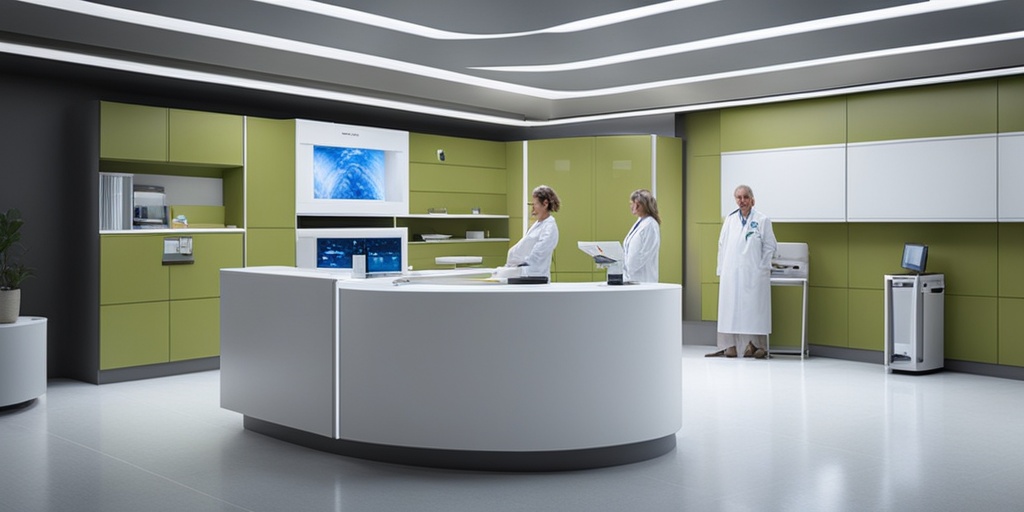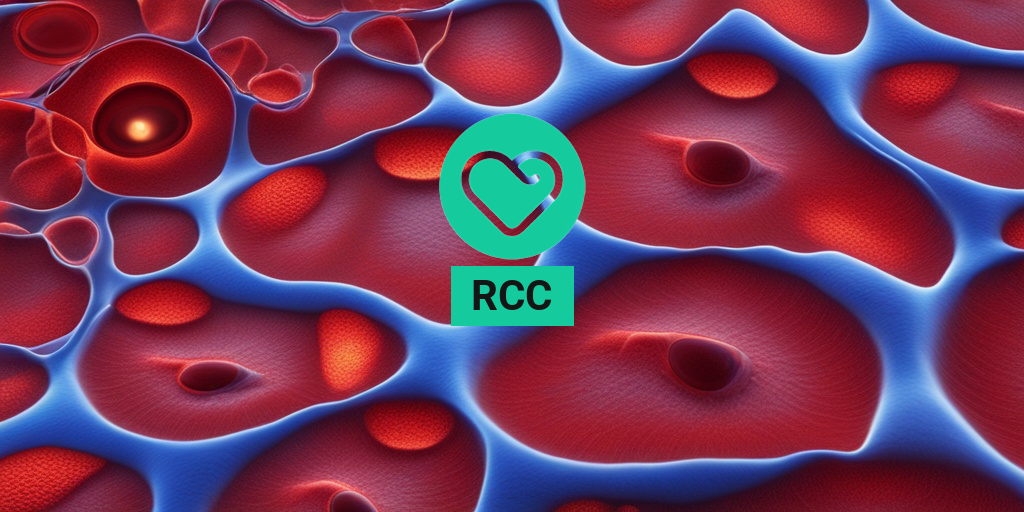“`html
What Is RCC?
RCC, or Renal Cell Carcinoma, is a type of kidney cancer that originates in the lining of the renal tubules, which are responsible for filtering blood and producing urine. This form of cancer is the most common type of kidney cancer in adults, accounting for approximately 90% of all kidney cancer cases. Understanding RCC is crucial for early detection and effective treatment.
Types of RCC
There are several subtypes of RCC, each with distinct characteristics:
- Clear Cell RCC: This is the most prevalent subtype, characterized by clear cells that appear due to the accumulation of lipids and carbohydrates.
- Papillary RCC: This type is marked by finger-like projections and is often associated with genetic conditions.
- Chromophobe RCC: This subtype has a better prognosis and is characterized by larger cells with a distinct appearance.
- Collecting Duct Carcinoma: A rare and aggressive form of RCC that arises from the collecting ducts of the kidney.
Risk Factors for RCC
Several factors can increase the risk of developing RCC, including:
- Smoking: Tobacco use is a significant risk factor for many cancers, including RCC.
- Obesity: Excess body weight is linked to a higher risk of kidney cancer.
- High Blood Pressure: Hypertension can contribute to kidney damage and increase cancer risk.
- Family History: A genetic predisposition can play a role in the development of RCC.
RCC Symptoms
Recognizing the symptoms of RCC is vital for early diagnosis and treatment. Unfortunately, many individuals may not experience symptoms in the early stages of the disease. However, as the cancer progresses, the following symptoms may become apparent:
Common Symptoms of RCC
- Blood in Urine (Hematuria): One of the most common signs, blood may appear bright red or dark brown.
- Persistent Back Pain: Pain in the lower back or side that does not go away can be a warning sign.
- Unexplained Weight Loss: Losing weight without trying can indicate an underlying health issue.
- Fatigue: A general feeling of tiredness or weakness that does not improve with rest.
- Fever: Unexplained fevers may occur, especially if the cancer has spread.
- Swelling: Swelling in the ankles or legs may occur due to kidney dysfunction.
When to See a Doctor
If you experience any of the above symptoms, especially blood in your urine or persistent pain, it is essential to consult a healthcare professional. Early detection significantly improves treatment outcomes for RCC.
Conclusion
Understanding RCC and its symptoms is crucial for early intervention and effective treatment. If you or someone you know is at risk or experiencing symptoms, seeking medical advice is vital. For more information on RCC and other health-related topics, consider visiting Yesil Health AI, a valuable resource for evidence-based health answers. Remember, knowledge is power when it comes to health!
Stay informed and proactive about your health! 🌟
“`

“`html
RCC Causes
Renal Cell Carcinoma (RCC) is a type of kidney cancer that originates in the lining of the renal tubules. Understanding the causes of RCC is crucial for prevention and early detection. While the exact cause of RCC remains unclear, several factors have been identified that may contribute to its development.
Genetic Factors
Genetics play a significant role in the risk of developing RCC. Certain inherited conditions, such as:
- Von Hippel-Lindau (VHL) syndrome: This genetic disorder increases the risk of various tumors, including RCC.
- Hereditary Leiomyomatosis and Renal Cell Cancer (HLRCC): This condition is associated with an increased risk of RCC and skin tumors.
- Birt-Hogg-Dubé syndrome: A rare genetic disorder that can lead to RCC and other types of tumors.
Individuals with a family history of RCC may have a higher risk, indicating that genetic predisposition is a significant factor.
Environmental Factors
Exposure to certain environmental toxins has also been linked to RCC. Some of these include:
- Chemical exposure: Long-term exposure to substances like asbestos, cadmium, and certain herbicides may increase the risk of RCC.
- Smoking: Tobacco use is a well-established risk factor for many cancers, including RCC. The harmful chemicals in cigarettes can damage kidney cells and lead to cancer.
Obesity and Lifestyle Choices
Obesity is another significant risk factor for RCC. Excess body weight can lead to hormonal changes and increased inflammation, both of which may contribute to cancer development. Additionally, lifestyle choices such as:
- Poor diet: Diets high in processed foods and low in fruits and vegetables may increase the risk of RCC.
- Lack of physical activity: Sedentary lifestyles are associated with a higher risk of various cancers, including RCC.
Making healthier lifestyle choices can help mitigate these risks.
RCC Risk Factors
Identifying risk factors for RCC is essential for early detection and prevention. While some factors are beyond our control, understanding them can help individuals make informed decisions about their health.
Age and Gender
Age is a significant risk factor for RCC, with most cases diagnosed in individuals over the age of 50. Additionally, men are more likely to develop RCC than women, with a ratio of approximately 2:1. This disparity may be attributed to hormonal differences and lifestyle factors.
Chronic Kidney Disease
Individuals with chronic kidney disease (CKD) are at a higher risk of developing RCC. Conditions such as:
- Dialysis: Long-term dialysis treatment can increase the risk of RCC.
- Polycystic kidney disease: This genetic disorder leads to the formation of cysts in the kidneys and is associated with an increased risk of RCC.
Monitoring kidney health is crucial for those with CKD to catch any potential issues early.
Hypertension
High blood pressure, or hypertension, is another risk factor linked to RCC. The relationship between hypertension and RCC is complex, but it is believed that the stress on blood vessels and kidneys may contribute to cancer development. Managing blood pressure through lifestyle changes and medication can be beneficial.
Other Medical Conditions
Several other medical conditions have been associated with an increased risk of RCC, including:
- Diabetes: Individuals with diabetes may have a higher risk of developing RCC due to metabolic changes.
- Gout: This inflammatory condition has been linked to an increased risk of RCC.
Regular check-ups and managing these conditions can help reduce the risk of RCC.
Understanding the causes and risk factors of RCC is vital for prevention and early detection. By being aware of these factors, individuals can take proactive steps to protect their kidney health and seek medical advice when necessary. 🌟
“`

“`html
RCC Diagnosis
Renal Cell Carcinoma (RCC) is a type of kidney cancer that can be challenging to diagnose, especially in its early stages. Understanding the diagnostic process is crucial for timely intervention and effective treatment. Here, we will explore the various methods used to diagnose RCC, the importance of early detection, and what patients can expect during the diagnostic journey.
Understanding the Symptoms
Many patients with RCC may not experience noticeable symptoms in the early stages. However, as the disease progresses, some common symptoms may include:
- Blood in urine (hematuria) 🚨
- Persistent back pain or side pain
- Unexplained weight loss 📉
- Fatigue or weakness
- Fever that doesn’t go away
If you experience any of these symptoms, it’s essential to consult a healthcare professional for further evaluation.
Diagnostic Tests for RCC
Once symptoms are reported, several diagnostic tests may be conducted to confirm the presence of RCC:
- Imaging Tests: These include ultrasound, CT scans, and MRI scans, which help visualize the kidneys and detect any abnormal masses.
- Urinalysis: A urine test can reveal the presence of blood or cancer cells.
- Biopsy: In some cases, a biopsy may be performed to obtain a tissue sample from the kidney for laboratory analysis.
- Blood Tests: Blood tests can help assess kidney function and detect any abnormalities in kidney-related markers.
Early diagnosis of RCC is vital, as it significantly improves the chances of successful treatment. Regular check-ups and awareness of symptoms can lead to earlier detection and better outcomes.
RCC Treatment Options
Once diagnosed with RCC, patients may feel overwhelmed by the variety of treatment options available. The choice of treatment often depends on the stage of cancer, the patient’s overall health, and personal preferences. Here, we will discuss the most common treatment options for RCC.
Surgical Treatments
Surgery is often the primary treatment for localized RCC. The main surgical options include:
- Partial Nephrectomy: This procedure involves removing the tumor along with a small margin of healthy tissue, preserving as much of the kidney as possible.
- Radical Nephrectomy: In cases where the cancer is more advanced, the entire kidney, along with surrounding tissues and possibly nearby lymph nodes, may be removed.
Both surgical options aim to eliminate cancer and can be highly effective, especially when the disease is detected early.
Non-Surgical Treatments
For patients who may not be candidates for surgery or for those with advanced RCC, non-surgical treatments may be recommended:
- Targeted Therapy: This treatment uses drugs that specifically target cancer cells while minimizing damage to normal cells. It can be effective in slowing the growth of RCC.
- Immunotherapy: This approach helps the body’s immune system recognize and attack cancer cells. It has shown promising results in treating advanced RCC.
- Radiation Therapy: While not commonly used as a primary treatment for RCC, radiation can help relieve symptoms in advanced cases or after surgery.
Clinical Trials and Emerging Treatments
Patients may also consider participating in clinical trials, which can provide access to new and innovative treatments that are not yet widely available. These trials are essential for advancing RCC treatment options and improving patient outcomes.
In conclusion, the diagnosis and treatment of RCC involve a comprehensive approach tailored to each patient’s unique situation. Early detection and a multidisciplinary treatment plan can significantly enhance the chances of successful outcomes. If you or a loved one is facing an RCC diagnosis, it’s crucial to discuss all available options with a healthcare provider to determine the best course of action.
“`

“`html
RCC Living with the Condition
Living with Renal Cell Carcinoma (RCC) can be a challenging journey, both physically and emotionally. Understanding the condition, its symptoms, and the available treatment options is crucial for patients and their families. This section aims to provide insights into managing life with RCC and the support systems that can help.
Understanding RCC: What You Need to Know
RCC is a type of kidney cancer that originates in the lining of the renal tubules. It is the most common type of kidney cancer in adults, accounting for approximately 90% of cases. Symptoms may include:
- Blood in urine (hematuria)
- Persistent back pain or side pain
- Unexplained weight loss
- Fatigue and weakness
- Fever that doesn’t go away
Recognizing these symptoms early can lead to timely diagnosis and treatment, which is essential for improving outcomes.
Managing Symptoms and Side Effects
Patients with RCC often face various symptoms and side effects from treatments such as surgery, chemotherapy, or targeted therapy. Here are some strategies to manage these challenges:
- Stay Hydrated: Drinking plenty of fluids can help manage symptoms like fatigue and maintain kidney function.
- Nutrition: A balanced diet rich in fruits, vegetables, and whole grains can support overall health and recovery.
- Physical Activity: Engaging in light exercise, as advised by your healthcare provider, can improve mood and energy levels.
- Emotional Support: Joining support groups or talking to a mental health professional can help cope with the emotional toll of RCC.
Building a Support Network
Having a strong support system is vital for anyone living with RCC. This network can include:
- Family and Friends: They can provide emotional support and assist with daily tasks.
- Healthcare Team: Regular communication with doctors, nurses, and specialists is crucial for managing treatment and side effects.
- Support Groups: Connecting with others who are experiencing similar challenges can provide comfort and practical advice.
Utilizing these resources can significantly enhance the quality of life for those living with RCC. Remember, you are not alone in this journey! 💪
RCC Research and Future Directions
The field of RCC research is rapidly evolving, with ongoing studies aimed at improving diagnosis, treatment, and patient outcomes. Here’s a look at some of the exciting advancements and future directions in RCC research.
Current Research Trends
Researchers are exploring various avenues to enhance our understanding of RCC, including:
- Genetic Studies: Investigating the genetic factors associated with RCC can lead to personalized treatment approaches. The RCCX gene theory is one area of focus, examining how genetic variations may influence cancer development.
- Immunotherapy: This innovative treatment harnesses the body’s immune system to fight cancer. Clinical trials are ongoing to evaluate the effectiveness of new immunotherapeutic agents.
- Targeted Therapies: Research is focused on developing drugs that specifically target cancer cells while sparing healthy cells, minimizing side effects.
Future Directions in RCC Treatment
The future of RCC treatment looks promising, with several potential advancements on the horizon:
- Combination Therapies: Combining different treatment modalities, such as immunotherapy and targeted therapy, may enhance effectiveness and improve patient outcomes.
- Biomarker Research: Identifying biomarkers can help predict how patients will respond to specific treatments, allowing for more tailored approaches.
- Clinical Trials: Participation in clinical trials can provide access to cutting-edge therapies and contribute to the advancement of RCC treatment.
As research continues to progress, it is essential for patients and caregivers to stay informed about new developments in RCC. Engaging with healthcare providers and exploring available resources can empower patients to make informed decisions about their treatment options. 🌟
“`

“`html
Frequently Asked Questions (FAQ)
What is RCC?
RCC stands for Renal Cell Carcinoma, a type of kidney cancer that originates in the lining of the renal tubules. It is the most common type of kidney cancer in adults.
What are the symptoms of RCC?
- Blood in urine (hematuria)
- Persistent back pain
- Unexplained weight loss
- Fatigue
- Fever
- Loss of appetite
How is RCC diagnosed?
Diagnosis of RCC typically involves a combination of imaging tests such as CT scans or MRIs, blood tests, and sometimes a biopsy to confirm the presence of cancer cells.
What are the treatment options for RCC?
Treatment for RCC may include:
- Surgery to remove the tumor
- Targeted therapy
- Immunotherapy
- Radiation therapy
Can RCC be prevented?
While there is no guaranteed way to prevent RCC, certain lifestyle changes may reduce risk, such as:
- Maintaining a healthy weight
- Avoiding smoking
- Controlling high blood pressure
- Staying physically active
What is the prognosis for RCC?
The prognosis for RCC varies based on several factors, including the stage at diagnosis, the patient’s overall health, and how well the cancer responds to treatment. Early detection generally leads to better outcomes.
Where can I find support for RCC?
Support for individuals affected by RCC can be found through various organizations, online forums, and local support groups. Connecting with others who have similar experiences can provide valuable emotional support.
Is there ongoing research for RCC?
Yes, there is ongoing research focused on improving treatment options and understanding the biology of RCC. Clinical trials are frequently conducted to test new therapies and approaches.
How can I stay informed about RCC?
Staying informed about RCC can be achieved through reputable medical websites, patient advocacy groups, and by discussing with healthcare providers. Regular check-ups and screenings are also important for early detection.
“`




